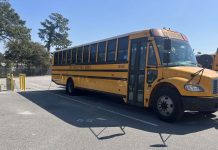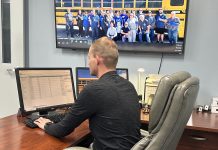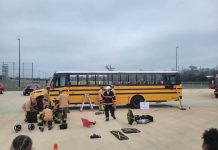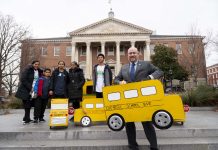David Strickland, who just last month inexplicably left the U.S. Department of Transportation, will join Venable LLP later this month as partner, the law firm announced.
Strickland said Venable has one of the strongest regulatory and consumer protection policy practices in the nation. He added that Venable has the expertise to navigate federal regulations to “get things done.” He will be working with the likes of former Sen. Birch Bayh, former Transportation Secretary James Burnley and former congressman Bart Stupak as well a bipartisan group of veteran Capitol Hill legislative staffers and Executive Branch policy advisors and regulators, a spokesman for Venable added.
“Joining this team of extremely talented attorneys and experts to help develop cross-cutting and thoughtful solutions captures what I envisioned in a full service firm,” Strickland said in a statement. “I could not be more excited to be joining them.”
Strickland earned his J.D. from Harvard Law School in 1993 and a B.S. from Northwestern University in 1990.
He served as NHTSA administrator since 2010, when he was nominated by President Obama and confirmed by the Senate. He oversaw the implemenation of upgraded school bus passenger crash protection under FMVSS 222 that was finalized in 2008. The new rule requires all Type A school buses under 10,000 pounds to roll off manufacturing lines with installed three-point, lap-and-shoulder restraints. The update also published performance standards for these lap/shoulder belts voluntarily installed on large Type C conventional or Type D transit-style school buses with a gross vehicle weight rating of more than 10,000 pounds. Seat backs must also be raised to 610 mm (24 inches) from the previous standard of 508 mm (20 inches), and the seats must come equipped with a self-latching mechanism on seat bottom cushions that are designed to flip up or be removable without tools.
Strickland also denied requests to require lap-and-shoulder seat belts on large school buses, because NHTSA said that the restraint systems could actually result in more student fatalities each year because of reduced ridership on buses. NHTSA estimates that the seat belts incur an incremental cost of $5,485 to $7,345 per bus.
In addition to focusing on child passenger safety issues both in school buses and other vehicles, he spearheaded a recent final rule requiring three-point seat belts in motorcoaches, issued the first ejection mitigation standards for passenger vehicles to help keep passengers from being partially or fully ejected from vehicles during a rollover crash, and led the development of the first national fuel efficiency program in conjunction with the EPA.
“An advocate for public safety on the roads, David has impressed the industry with his accomplishments,” said Brock R. Landry, co-chair of Venable’s Government Division. “From the Hill to the Administration, David is well respected and understands the often complex regulatory process from different points of view. He will play a key role in the ongoing growth of our Government Affairs, Automotive, and Technology practices.”
Stuart P. Ingis, partner-in-charge of the Washington, D.C., office added: “David is a problem solver and consensus builder, both critical traits to effectively representing clients in Washington. David is a tireless advocate in everything he has done. We are thrilled to have him as part of the Venable team, and I know he’ll bring the same passion and energy to our clients that he brought to his public service.”
















